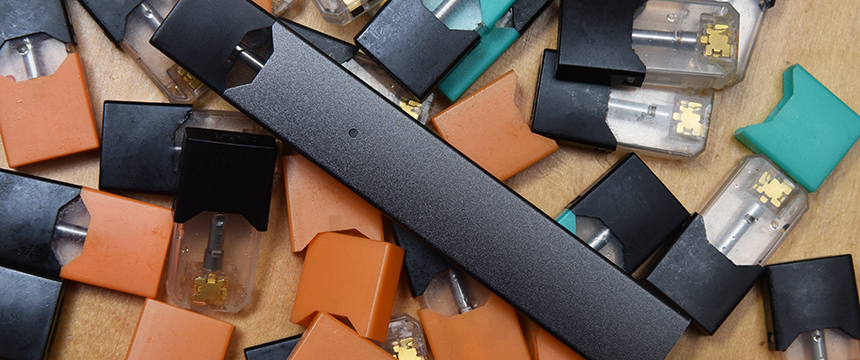
On December 1, 2021, the U.S Food and Drug Administration (FDA) issued warning letters to several companies for marketing vaping products with unproven health claims. In a consumer update, FDA warned consumers that certain “wellness” vaping products containing vitamins or essential oils are being sold illegally with unproven claims. Currently, FDA has not approved any vaping products to prevent or treat any health conditions or diseases.
Based on the warning letters sent to a number of companies, FDA deemed these products as unapproved drug products that are in violation of the Federal Food, Drug, and Cosmetic Act (FD&C Act). Some of these “wellness” or health claims include enhanced immunity, weight loss aid, fight tumors, reducing inflammation, and decreasing respiratory infection. Specific examples of the unproven claims from these letters include:
- “Both calming and uplifting, geranium makes a natural antidepressant and helps to relieve anxiety.”
- “Lychee is a wonderful fruit with plenty of health benefits, including its ability to aid in weight loss, protect the skin, boost the immune system prevent cancer, improve digestion, build strong bones, lower blood pressure, defend the body against viruses, improve circulation, and optimize metabolic activities.”
- “Astragulas. . . is known to be a powerful immune-building plant. . . and can even fight off tumors and alleviate symptoms of chemotherapy!”
- “Ginkgo Biloba (Salisburia adiantifolia) . . . Widely studied for its effective anti-inflammatory, antioxidant, platelet-forming and circulation-boosting effects. Current research show ginkgo benefits include improved cognitive function, positive mood, increased energy, improved memory and reduced symptoms related to multiple chronic diseases — for instance, it’s been used as a [sic] organic asthma remedy, ADHD remedy, and dementia treatment.”
FDA stated the companies “should take prompt action to address the violations cited” in the letter. Furthermore, FDA stated that failure to promptly address these violations can result in enforcement actions such as seizure and injunction.
Consumers should be mindful about vaping products claiming to contain vitamins and other natural ingredients. The terms “wellness” and “natural” on labels are not well-defined and are often used to imply health benefits and the safety of products. Just because a product claims to be natural doesn’t necessarily mean it is safe.
Promotional claims for vaping products can be quite confusing as the products are often labeled as:
- dietary supplements, vitamins, all-natural, foods;
- inhalers, infusers, diffusers, vaporizers; and
- wellness vapes or aroma therapies.
The products have been marketed in a variety of flavors and using fanciful names to target and attract use by minors.
There are very rigorous requirements for marketing tobacco and nicotine related products in the US. We expect FDA to continue its enforcement actions against companies who are marketing products with potential false and misleading claims.
Foley is here to help you address the short- and long-term impacts in the wake of regulatory changes. We have the resources to help you navigate these and other important legal considerations related to business operations and industry-specific issues. Please reach out to the authors, your Foley relationship partner, or to our Health Care Practice Group and Life Sciences Industry Team with any questions.
